The sambar represents one of the most complex divides between north and south India. In the southern states, sambar (pronounced saam-baar) is a liquidy lentils-based thing that you can mix with rice, idli or dosa. In fact, we southern conservation biologists are so passionate about sambar (actually, so poorly funded) that we eat sambar rice three times a day in the field. Of course, we dont eat the deer – that is actually called a Mlavu in Tamil and Malayalam.

https://commons.wikimedia.org/wiki/File:Sambar.JPG
In the north, however, the deer is called sambar in Hindi (pronounced saam-bhur). And the liquidy dish called sambar was fairly unknown – until a few decades ago. Now, people from the south call the deer sambar (but pronounce it as saam-baar, like the liquidy thing). People from the north call the liquidy thing sambar (but pronounce it as saam-bhur, like the deer). Its all very confusing.
Anyway, so what, you may wonder? After all the sambar deer mostly just stands around making stupid faces (the sambar dish also just stands around, but not making faces though):
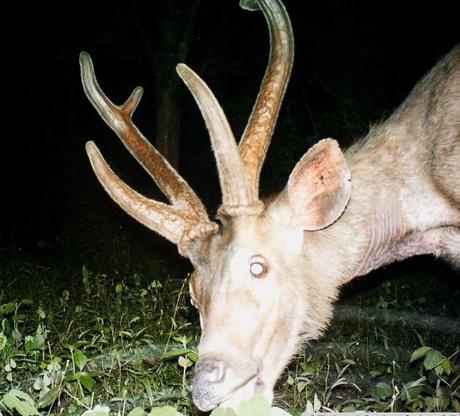
Look at me, I’m a sambar
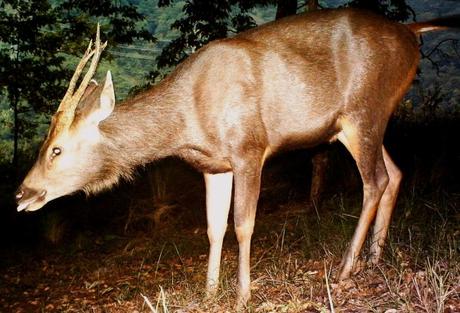
Sambar making more stupid faces
But in the meantime, tigers, leopards and dholes are sneaking up and trying to eat it:
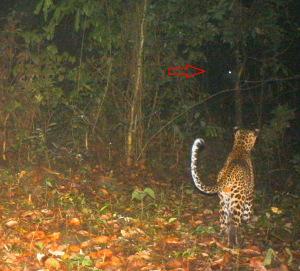
Leopard has spotted the sambar, but sambar has also spotted the leopard
And that is one of the reasons the sambar is so important – it is a staple food item for threatened carnivores. You could even say that the sambar is the sambar-rice of the tiger world. Yes, particularly the fawns, in case you were wondering:
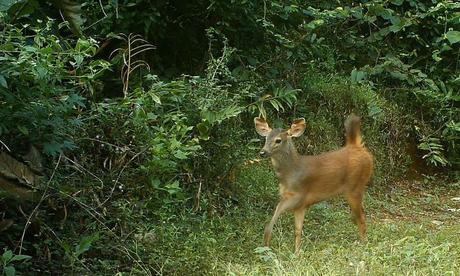
Baby sambar, aka nice tiger snack
But the sambar is actually a tougher customer than you may think. The teeth are not that big, but a sambar could easily bite your finger off in case you decided to put your finger in its mouth. Not sure why you would do that though:
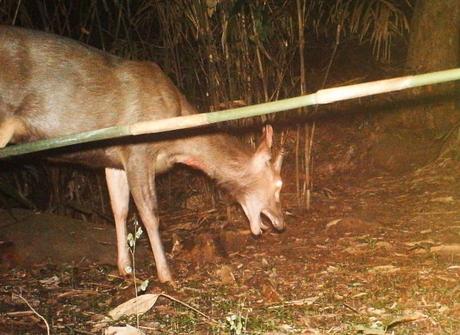
Sambar teeth (the thing thats sticking out is the tongue)
An angry male sambar can cause some trouble with his antlers:
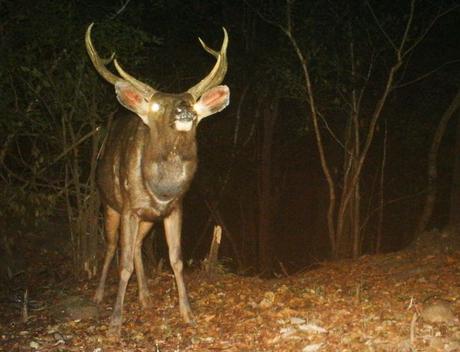
The sambar challenge
And in fact, they use them in their fights for dominance. These can sometimes be hard fought, but more often they are decided within a minute:
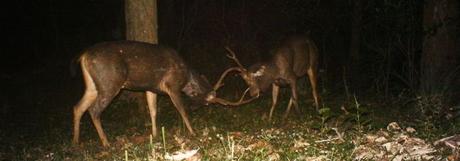
Sparring sambar
.. though unfortunately, they sometimes seem to have trouble understanding what the target is!
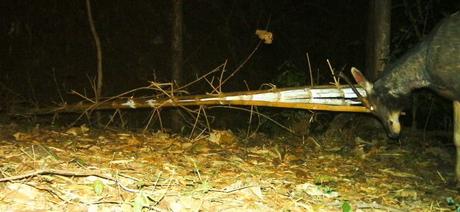
This bamboo is my enemy
They also decorate their antlers with branches as part of their mating rituals and dominance displays. The end result looks ridiculous:

Weird head-dresses of the sambar
… and some are less competent than others:
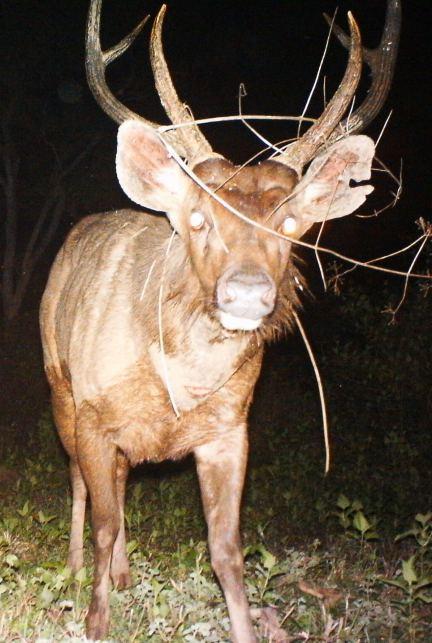
An incompetent sambar
The weirdest thing about sambar, though is their ‘sore patches’. These are raw, bloody patches they get on their throats, which ooze out weird stuff that they likely use as part of their mating process (such as for territorial marking, or to indicate mating readiness):
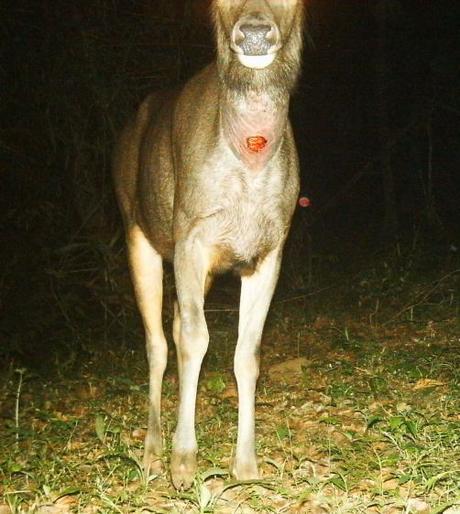
Sambar sore patch dripping blood and gore
Male sambar engage in this behavior called ‘preaching’, where they stand on their hind legs and rub their sore throats on to trees (more height = more range for the chemicals, same reason that small carnivores deposit their scat on top of elephant dung).
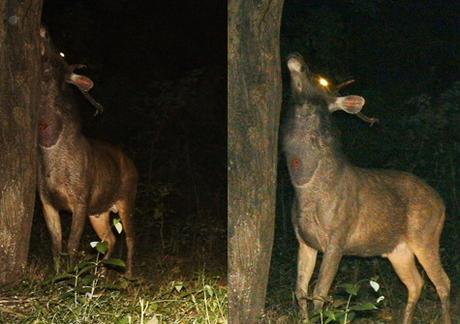
Sambar rubbing sore patch on a tree
They keep coming back to the same tree, again and again, day after day, trying to overcome each others’ markings, making their patches more and more bloody….
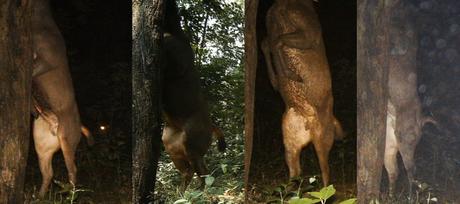
More preaching
And that is how a sambar lives its life. Preaching to a world that doesnt care.
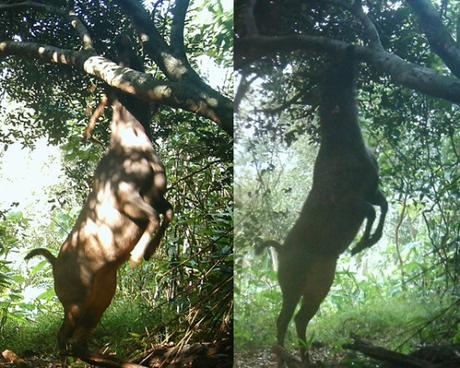
Even more preaching
Bonus question: Would a sambar like to eat sambar rice? That is a truly profound question with important philosophical implications. Being true scientists driven by the desire to advance the frontiers of human knowledge, we have experimentally tested this question. Sambar rice quickly gets stale in the heat, and we sometimes have to abandon it (and go hungry) if we postpone lunch for too long. Here are some sambar that are eating our remnant sambar rice. I think they like the salt.

Sambar eating sambar rice
